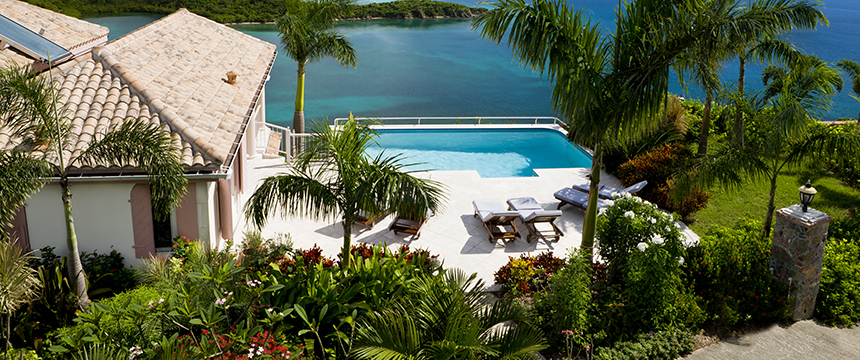
There is no denying that COVID-19 has dealt an unprecedented blow to the timeshare industry. While timeshare companies face a months-long road to recovery, diligent preparation for a strong comeback should begin today. Timeshare companies should begin forming expert-informed and data-driven plans for how to prepare to return to normal operations and how they will actually operate once normal operations have resumed, while keeping timeshare owners and potential resort guests engaged in and informed of that process.
The main priority of the timeshare industry must be to ensure the health and safety of timeshare owners, resort guests, and resort employees, but timeshare companies must also begin to contemplate keeping owners and potential resort guests engaged in order to build future demand. Past events such as natural disasters, September 11, and the financial crisis have shown that timeshare owners are some of the first people to return to traveling, and timeshare resorts are the some of the first businesses to bounce back. Although travel sentiment is currently down, as the duration of quarantine extends, pent up demand to travel will continue to grow. Further, data from China and South Korea suggests that travel demand will increase as social distancing guidelines and travel restrictions are lifted. Timeshare companies need to prepare action plans to address the current state of affairs during quarantine as well as a plan for the recovery that is likely to take place gradually, and also be prepared for the future when travel demand begins to pick back up. Timeshare owners and resort guests are more likely to begin making reservations and traveling in the future when they feel safe. All of a timeshare company’s actions in the immediate future need to contemplate that fact.
Below are some items timeshare companies should consider in planning and implementing their COVID-19 responses:
Monitor Agency Guidelines and Consult Experts
For the foreseeable future, timeshare companies should continuously monitor guidelines and advisories from the CDC, OSHA, and other local, state, and federal governmental agencies and consider engaging and consulting with experts in public health and safety to inform their plans and procedures related to COVID-19, with health and safety being the number one priority as states and timeshare resorts begin to reopen in the coming months.
Prepare for Continued Physical Distancing Protocols
Timeshare companies should begin removing and rearranging furniture to ensure increased physical space between people in public areas, adding signs to public areas encouraging people to stand at least six feet apart while queueing in lines or moving around the resorts, equipping resort employees, particularly at front desks, with masks and gloves (eventually brand or resort themed), installing partitions, utilizing mobile applications which provide check-in, digital key, and other options to limit contact at arrival and departure, and complying with legal occupancy limits. Occupancy quotas should be enacted which lower the amount of people allowed in elevators, gyms, spas, and other public spaces. Resorts will need to expand upon their private dining and room service options while discontinuing buffet-style service and having uncovered snacks available for the foreseeable future. With proper pre-planning and creative thinking, resort operators might contemplate new methods of providing some amenities such as deliveries of local restaurant chef-prepared meals and outdoor workouts with proper spacing conducted by local instructors. Depending on a resort’s design, limitations on reservations and occupancy may need to be enacted allowing for empty rooms between occupied rooms.
Plan and Implement Cleaning and Disinfecting Procedures
Timeshare companies should focus on the health and safety of timeshare owners, resort guests, and resort employees as well as making sure people feel comfortable and secure while at their resorts, by installing touchless hand-sanitizing stations in public areas, providing disinfectant wipes in both public areas and private rooms, utilizing improved cleaning products such as high-grade or long-term disinfectant sprays and UV technology disinfectants, increasing the frequency of cleaning all high-contact surfaces like elevator lobby buttons, door handles, gym equipment, and public bathrooms, and minimizing cash payments. Resorts might consider providing guests with brand-themed or resort-themed masks, hand sanitizers, or disinfectant wipes upon arrival and, in order to conserve resources, having guests select any other amenities that are desired at or prior to check-in, or on demand, so amenity items do not have to be frequently thrown away and replaced while still unused or unopened. In cases where it is possible, after a room is vacated, a resort could leave the room untouched 48 hours before cleaning and then allowing a guest access to it, with the resort alternating reservations so that one room will be vacant when the rooms on either side of it are occupied. Resorts may also want to consider having employees operate manual doors and elevators. Finally, in an effort to protect against the pandemic and provide safety measures, companies will need to determine whether to monitor temperatures of employees and guests, possibly using non-contact infrared thermometers, upon arrival at a resort and utilize facial recognition cameras in smart phones to allow touchless check-in of guests.
Plan for Bringing Resort Employees Back to Work
Although travel demand will begin to increase as social distancing guidelines and travel restrictions are lifted, this will be a slow process to recovery. Employees will need to be gradually re-employed on a phased schedule to allow training, provision of services in a resort with diminished occupancy initially, and increased demand growing over time.
Train Resort Employees on Recently Adopted Plans
Timeshare companies should clearly instruct employees about their new plans and procedures, including how to wear and discard masks and gloves, observing appropriate personal hygiene, handwashing, and hand sanitizing, and understanding new COVID-19 cleaning, disinfecting, and physical distancing protocols. Companies can begin to provide online training programs while these employees still remain at home. Marketing teams should also be well-versed in these plans and ready to discuss with consumers.
Communicate With and Reassure Timeshare Owners and Future Resort Guests
Prior to further opening resorts, timeshare companies should use social media, text messaging, and email to keep timeshare owners and the potential travelers who will be resort guests (and future marketing guests) engaged and informed. Timeshare companies will need to emphasize their standards of cleanliness and preventative measures in order to reassure timeshare owners and future resort guests. The companies will need to update their websites to convey their prevention plans, contact information, and COVID-19 FAQs and post photos, videos, and blogs showing the public how they are getting their resorts ready to reopen, highlighting how they are giving back to the community (e.g. offering rooms to healthcare workers, donating meals to families in need, etc.), and marketing their resorts, locations, and amenities in creative ways. Steps must also be taken to strengthen brand relationships with these timeshare owners and future resort guests with content that entertains and adds value. In addition to emphasizing standards of cleanliness and preventative measures, companies should consider providing virtual visits to resorts and destinations, including cooking lessons with resort chefs, workout classes by resort trainers, in-home spa tips from spas, and interviews with resort employees about plans to welcome timeshare owners and resort guests and keep them healthy, safe, and comfortable on their future vacations.
Target Marketing as Resorts are Opened
As states and resorts reopen, resorts should slowly ramp up their marketing and outreach efforts to people who are yearning to travel while being mindful of the fact that consumers may have lighter pockets and different priorities than they did before the emergence of COVID-19. To reassure timeshare owners and resort guests, a flexible cancellation policy should be enacted (the airline industry saw a large spike in leisure traveler flight bookings when they instituted a change in their cancellation policies). Sensitive messaging targeted at timeshare owners and other consumers should increase along with demand for travel and desire to vacation. Timeshare companies should focus on local markets initially as individuals will likely be hesitant to fly on airplanes and may prefer to take “staycations.” Review of governmental orders will need to be conducted to understand whether feeder markets are impacted. Companies should focus on engaging timeshare owners who typically travel at that specific time of year and on owners and resort guests who recently cancelled or were unable to travel due to the quarantine. The fact that timeshare resorts may be made much safer than hotels due to their size and distance between units can be included in marketing efforts. For example, marketing might be considered to business executives who may want to stay at these safer locations or who may want to bring their families along for vacation. Marketing will need to highlight local area activities that will be open and available since previously popular attractions may be closed (for example, theme parks may remain closed for the foreseeable future). Through all of these marketing efforts, care will need to be taken not to sell too hard, or else a timeshare company could inadvertently damage their brand.
Protecting Timeshare Companies From Lawsuits
Absent legislation protecting businesses from lawsuits by employees and the public in the event they catch COVID-19, steps must be taken by the timeshare companies to meet their duty of care through providing hand sanitizer, face masks, and disinfectant wipes to timeshare owners, resort guests, and resort employees, having and properly implementing standards of cleanliness, and complying with social distancing guidelines, all as discussed above. Signs with appropriate disclosures and “proceed at your own risk” warnings should be developed and posted at every resort. Timeshare owners and resort guests should be required to acknowledge the risks of COVID-19 transmission as part of the reservation and check-in processes and waive liability against the applicable timeshare companies and associations. A questionnaire will need to be developed and administered for all owners, guests, and employees to complete to ensure no symptoms or risks exist prior to arrival at a resort. Timeshare companies should monitor local, state, and federal law to determine whether any “safe harbor” legislation has been passed which will help to protect against lawsuits as well, including legislation protecting against wage and hour, leave policy, and workers’ compensation litigation.
Reviewing and Understanding Reservation and Cancellation Procedures
As many timeshare owners have cancelled reservations or will be unable to make reservations during their designated use periods or while the resort(s) were closed, timeshare companies will need to analyze their use plans, reservation procedures, and cancellation policies and determine what accommodations, if any, will be made to the owners. Timeshare companies should carefully proceed with regard to such owners to consider how the overall system will be impacted and follow their own governing documents as well as applicable law. The impact on assessments (which are likely to increase as a result of enacting safety measures and growing bad debt) should be determined, as people may have difficulty paying for any increases. Budgets and reserve accounts may need to be adjusted or other measures taken to prepare for anticipated higher costs.
In summary, timeshare companies should begin preparing for a gradual comeback as states and resorts reopen and should keep timeshare owners and other consumers updated on their efforts to combat COVID-19 through social media, text messaging, email, and website updates. Timeshare companies will need to follow governmental guidelines and comply with legal requirements while providing well-staffed environments that promote health and safety and encourage resort employees, timeshare owners, and other consumers to feel comfortable and secure. These efforts to mitigate the impacts of COVID-19 should be clearly communicated over the coming months to employees, owners, and potential resort guests alike.
